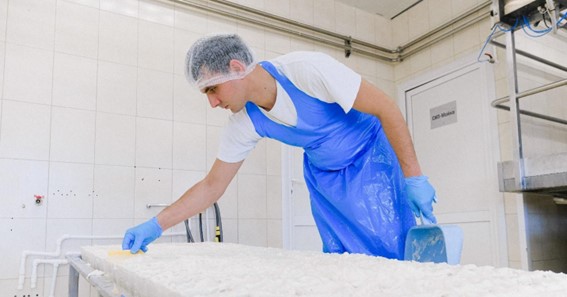Industrial hygiene, the precise science of ensuring the protection and safety of workers in an industrial setting, has been the focal point of public health laws for a while. Emerging in the 1900s, when the term was coined by American Public Health Association (APHA), the focus on industrial hygiene has significantly increased since then. Now, industrial hygiene matters are overlooked by the Occupational Safety and Health Administration (OSHA), which overlooks and upholds regulations and standards to ensure public safety.
Industrial hygiene, in turn, is more than simply ensuring that the floor and work surfaces are clean. It is concerned with observing and identifying hazards, analyzing them, and controlling the conditions to ensure all hazards are prevented. Hence, industrial hygiene tends to fall into the following categories:
Chemical hazards: chemical hazards are any substances that have the potential to cause harm to anyone. These chemicals can be in the form of liquids, solids, or gases.
Biological hazards: biological hazards, also known as biohazards, is any biological substance, such as bacteria, virus, toxins, etc., that can be hazardous to health.
Physical hazards: physical hazards are any factors, circumstances, or agents that can cause harm when someone comes in contact. For example, heat, cold, radiation, noise, etc., to an unbearable degree, cause physical harm and are categorized as hazards.
Ergonomic hazards: ergonomic hazards include physical hazards such as pushing or lifting heavy things, etc.
Air contamination: air contamination happens due to the presence of substances or fibers which can harm human health or the environment.
The categories of hazards and contaminations prove that industrial hygiene is a seriously delicate matter. To address such delicate matters, only the most qualified individuals who have an industrial hygiene masters degree, known as industrial hygienists, are required to help maintain OSHA standards and guidelines.
What can an industrial hygienist do?
It is an industrial hygienist’s responsibility to anticipate, observe, identify, evaluate, and recommend control methods to help eliminate physical and environmental hazards in a workplace. They use different scientific principles that can help identify workplace hazards after a thorough survey. They then analyze all the gathered data and interpret different toxicology reports to find the best remedy methods. Once they develop the control and programs to mitigate hazards, industrial hygienists then work with the company’s managers to implement these programs and ensure that all OSHA guidelines are met.
These measures can help maintain and improve the well-being and health of workers. Apart from that, an industrial hygienist is also responsible for ensuring that the company is adhering to all state and federal safety guidelines and regulations.
With that said, let us discuss the importance of industrial hygiene.
- It helps in minimizing workplace risks
Industrial hygiene programs designed after a complete survey of the place and enacted with all considerations in mind play a significant role in minimizing the risk of illness and injuries at the workplace. Even if there are any hazardous conditions present, a properly placed and executed industrial hygiene plan ensures that workers have adequate protection. Managing workplace hygiene ensures less exposure to hazards of any kind, better air quality, and improved health.
- It reduces absences due to illness and injury
Industrial hygiene’s primary target is to ensure the safety and health of employees. Hence, when they work in a clean and safe environment, workers don’t get sick often and can avoid injuries, ensuring they remain healthy and strong. It improves productivity, and with the full workforce in action, supervisors don’t have to worry about arranging substitutes or requesting overtime from the workers. These aspects have a major impact on employee hiring quality and also improve the employee retention rate since the current workers feel safe and comfortable in their environment.
- You save money
While maintaining industrial hygiene may seem costly on paper, at the end of the day, industries that maintain a robust hygiene plan are saving money in the long term. After all, there is a high price for not paying heed to the hygiene guidelines, and not only in fines. If workers get injured or sick, the company will have to pay worker compensation, indirect charges for injuries and accidents, employee turnover, and fines. Not to mention how any such incident would damage the business’s reputation in the market, causing hiring issues.
- It regains lost hours
Occupational health issues are one of the major reasons behind absenteeism. Apart from absenteeism, the lack of concentration and productivity due to health issues can be just as bad and can cause significant costs for the industry. But by maintaining the standards of industrial hygiene, you ensure that productivity does not halt, nor do you have to allocate additional resources to the hiring and training process. Hence, by defeating loss of productivity due to absenteeism, you regain lost hours simply by maintaining industrial hygiene.
Conclusion
Industrial hygiene is not limited to only large-scale industries but is concerned with every small and medium enterprise as well. The basic guideline is to ensure the safety of the workers, no matter the number. It reduces management’s challenges, improves employee retention rates, and ensures job satisfaction among the staff. Hence, whether it be a small-scale bakery or a large-scale industry, following industrial hygiene guidelines benefits everyone.







